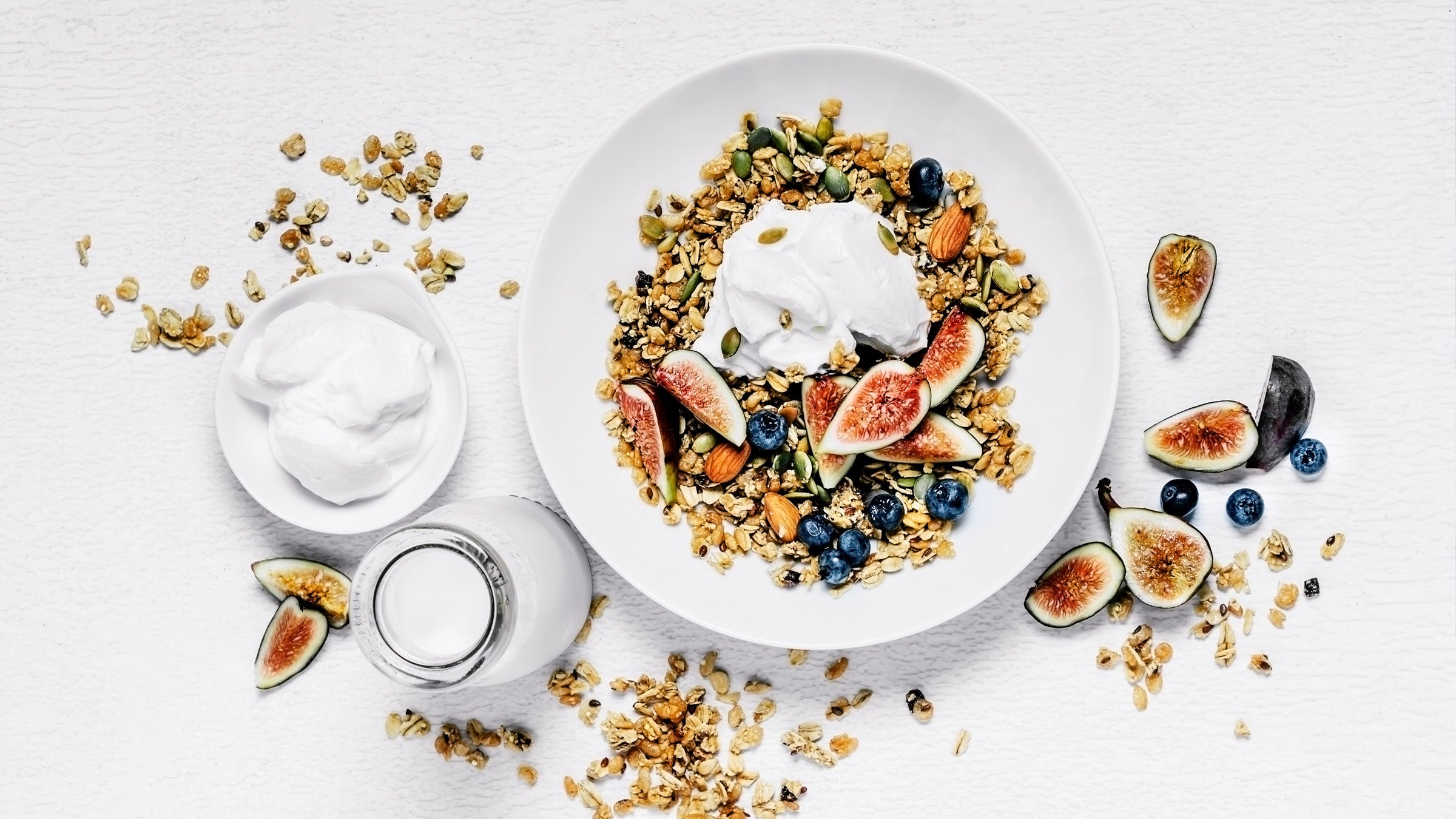The Best Anti-Inflammation Diet Tips, According to Top Nutrition Experts

(Photo: Claudia Totir/gettyimages.com)
If you feel like you’re constantly in a state of flight or fight, it’s likely your body is experiencing some form of inflammation. And who can blame you? The pressure related to the pandemic and navigating the “new normal” coupled with everyday stressors is enough to leave all of us in a constant state of inflammation.
Chronic inflammation is usually associated with risk factors, such as being older, a higher body weight, a poor diet high in refined sugars, difficulty sleeping and other medical and lifestyle conditions. I’m willing to bet that, if you’re reading this, you can probably relate to one of these factors (myself included!). But, here’s the thing: We have the power individually to make small, impactful changes to help combat inflammation in our day-to-day lives.
It can be a challenge to balance inflammation-fighting actions with all of the tempting treats out there. But let me be very clear here – there’s no evidence that enjoying one cookie is going to make you develop inflammation overnight! Instead, it’s repeated actions that turn a few indulgences into everyday behaviors, coupled with the other risk factors (hello age, stress, and lack of sleep), that can make the situation more challenging to manage.
Thankfully, what you eat and how you move your body on a regular basis can have a profound impact in helping to support it during seasons when your routine is thrown off track. I’ve rounded up tips from five top registered dietitians to offer their insight into what works for them and their clients. Rest assured, their anti-inflammation diet tips will help you tame the flame.
Anti-Inflammation Diet Tips from Registered Dietitians and Nutritionists
Switch up your beverages
Lauren Manaker, MS, RDN, LDN, CLEC, CPT, Women’s Health Expert, Owner of NutritionNowCounseling.com
Swap drinks with added sugars with 100 percent orange juice. Orange juice offers a sweet taste with no added sugars. Since excessive sugar intake is linked to chronic inflammation, finding a satisfying swap can be quite helpful. According to a recent study, drinking 100 percent orange juice may play a positive role in chronic inflammation and oxidative stress.
And other data shows that this may be due to natural chemicals found in a glass of citrus juice – for example, orange or grapefruit – that may have this positive effect on inflammation.
Focus on eating mindfully without banking calories
Wintana Kiros, RDN LDN, founder at Resetlifestyle.com
A bad habit you need to quit is “saving calories for later in the day.” This is the practice of skipping breakfast and lunch to eat a large dinner, and it often only leads to binge eating and poor food choices because you get hangry. Instead, eat a balanced breakfast and lunch with protein, fat and carbohydrates so you aren’t overly hungry when you arrive at dinner.
Another strategy that works well with my clients is challenging the mindset of the “clean your plate committee,” which forces people to force-feed themselves and overeat while ignoring the fullness cue in their body. Eating with smaller plates is a good trick to avoid this behavior. I’ve found these strategies to work successfully because they aren’t limiting and restrictive.
Aim for at least 1 to 3 servings of these fruits and veggies daily
Carolyn Williams, PhD, RD, author of the cookbook Meals That Heal: 100+ Anti-Inflammatory Recipes in 30 Minutes or Less and co-host of the Happy Eating podcast
Your primary goal is to enjoy mealtimes with friends and family – including eating foods you look forward to – not perfection or looking at eating from an all-or-nothing perspective. Instead, you want to find a healthy balance within the sea of treats and cocktails to keep tabs on overall inflammation. You can do this by getting at least one to three servings of leafy greens, cruciferous veggies (like broccoli, Brussels sprouts, and cauliflower), or berries in your diet every day.
When people ask me what to eat, it’s these three foods because research suggests they have the most powerful potential to tamp down inflammation. Also, this isn’t the time to skimp on your yogurt or kombucha. Disrupted gut microbes are a key way dietary inflamers lead to inflammation in the body, so it’s key to repopulate and support your good bacteria.
Find time for stress management
Amber Pankonin is an instructor at Great Plains Culinary Institute in Lincoln, NE and a Registered Dietitian and Personal Chef at Stirlist.com.
I encourage all my clients to focus on stress management. You can do this by making time to sit down and eat an actual meal, fitting in exercise, and/or finding time to chat with a friend or even counselor to help manage the stress. Focusing on stress management is important because inflammation and stress often go hand in hand.
When stress levels are high, this can increase cortisol levels which can increase your appetite. By learning to manage stress levels, this can help you manage multiple areas in your life including your food and beverage choices.
RELATED: Support Your Immune System with These Seven Superfoods
Get more of what you love from VT. Follow us on Instagram, Facebook, and Twitter, and sign up for our email newsletters.